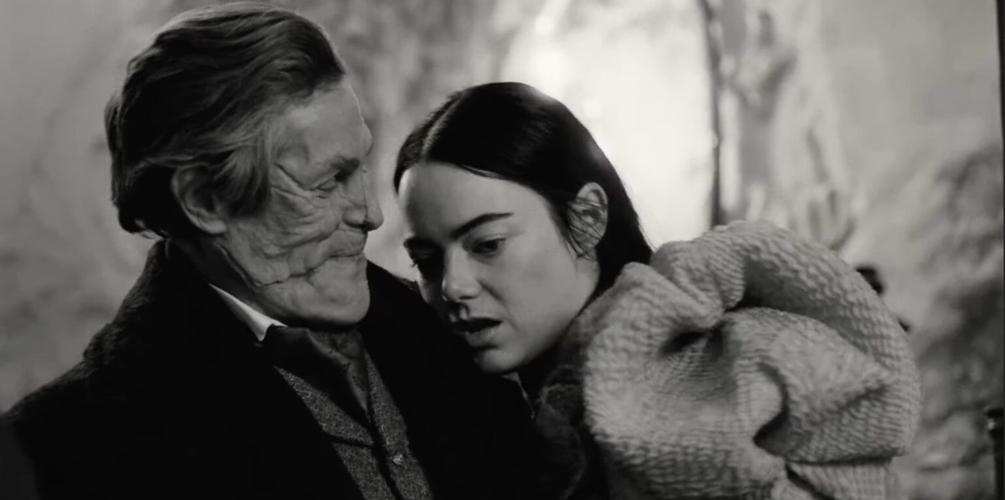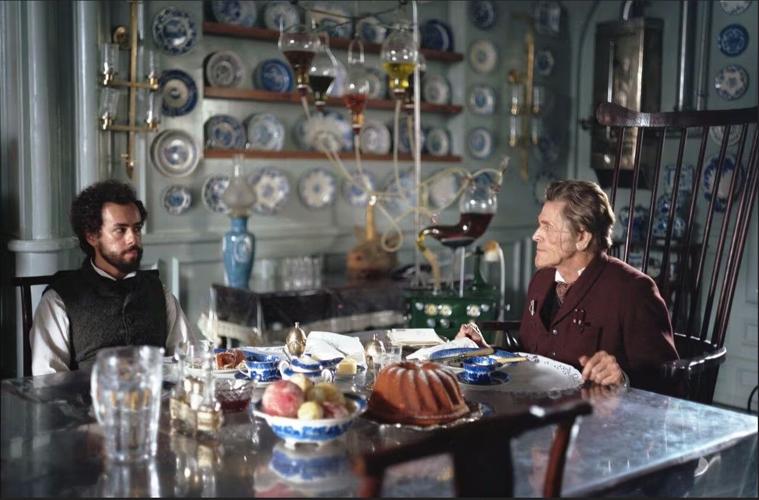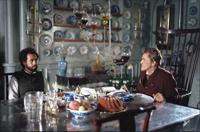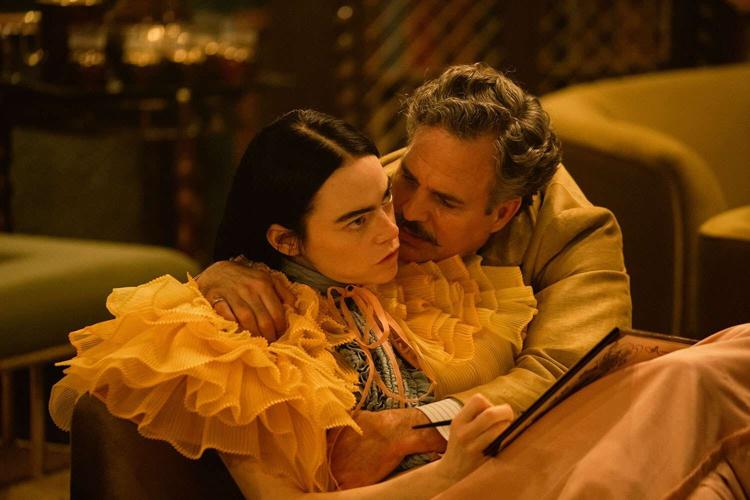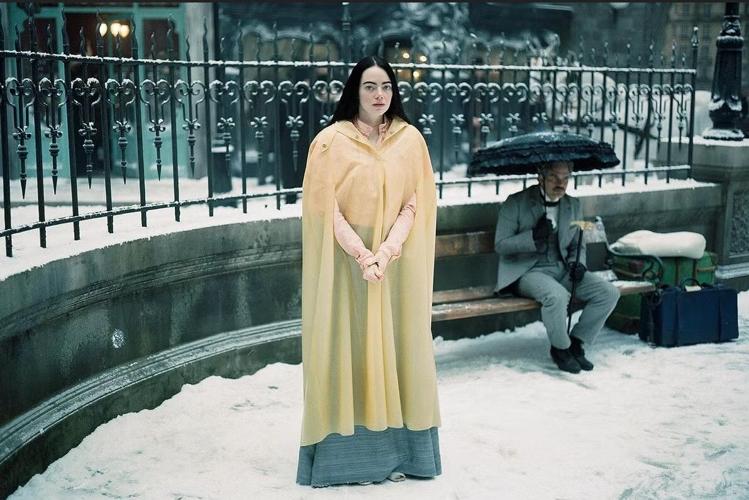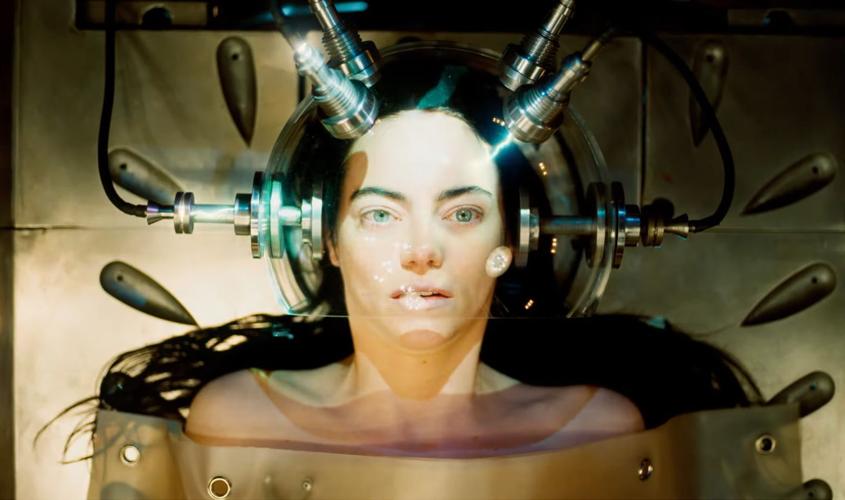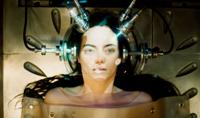This is the eighth feature from Greek filmmaker Yorgos Lanthimos. I've only seen half of his films, but, a pattern or common theme is definitely emerging from his various features. A lot of it, if not most of it, is about people being trapped in a place or situation from which they want to escape. Lanthimos' third feature Dogtooth (2010) was the film that put him on the map or got him the attention of people in the United States. It was about a family whose parents, particularly the father or male figure, trapped his children in their home. The film includes an act of prostitution essentially. It involves oral sex between two women. It also involves a person killing a defenseless animal, not for food reasons. It has a person behaving like an animal themselves, a man threatening physical violence against a woman and an incestuous act. I list all of those plot points because all of those same plot points appear in this film as well.
Lanthimos pulls a lot from Dogtooth, which was nominated for Best Foreign Language Film at the 83rd Academy Awards. However, Lanthimos also pulls from his previous The Favourite (2018). It makes sense because Lanthimos is using the same screenwriter from The Favourite, that of Tony McNamara. Whereas The Favourite was an original script, this film is instead an adaptation of a 1992 novel by Alasdair Gray, a Scottish author. Lanthimos was likely attracted to the novel because of similar plot points and themes or else he and McNamara graft said similarities onto this narrative. From a helicopter view Gray's novel and The Favourite, both are about a woman who is manipulated by the people around her who try to keep her trapped or contained with her sexuality being an instrument of escape.

Emma Stone (The Favourite and La La Land) stars as Bella Baxter, a woman living in London, England, during the Victorian era, meaning the mid to late 1800's. Bella is trapped in the home of the father figure in her life, Dr. Godwin Baxter. Despite having his last name, Godwin is not her biological father, but he essentially serves that function. Godwin keeps her trapped because Bella is suffering from what could be called a mental challenge. She's not autistic, but it does seem that she has some kind of neurological disorder. She has the body of a twenty-something woman but her mind is that of a toddler or perhaps a newborn baby.
Willem Dafoe (Shadow of the Vampire and Platoon) plays Dr. Godwin Baxter, a college professor at a medical school who teaches students surgical techniques, as well as human anatomy, often through live dissections or autopsies. Godwin is also a scientist, analogous to Victor Frankenstein from the eponymous novel. Godwin seems particularly fascinated with brain surgery. When the film begins, Bella is living with him in his home with servants who care for her. It's not clear where she originated or how long she's lived there. Godwin simply watches over her and forbids her from leaving.

Ramy Youssef (Ramy and Mr. Robot) co-stars as Max McCandless, a student of Godwin who is hired to be Godwin's personal assistant. He's initially brought to Godwin's home to observe Bella and record her growth and progress, documenting everything she does. He's shocked at her toddler or baby-like behavior. He begins to develop feelings for her. Unlike the other men in Bella's life, he doesn't feel the need to possess or control her. He's opposed to keeping her trapped. He sees that she loves to explore and discover new things, so he's resigned to letting her explore and discover, even if it means doing it without and even far away from him.
Mark Ruffalo (Spotlight and The Avengers) also co-stars as Duncan Wedderburn, a lawyer that Godwin hires to help with some contracts. He also develops feelings for Bella. Unlike Max, Duncan isn't passive. He's more aggressive in terms of his pursuit of Bella. He's very forward with his intentions and easily convinces her to come away with him on a European trip. At first, Bella sees it as a way to escape the confines of Godwin's home. She doesn't realize at first that she's going from one gilded cage to another. She goes from being Godwin's prisoner to essentially being Duncan's prisoner.

She is easily convinced due to her desire not to be trapped in Godwin's house but also due to her discovery of her sexuality and her insatiable desire to act upon her sexuality. Duncan is all too willing to help her with that desire. Godwin refuses to have sex because of an inability to do so. Max is too much of a gentleman and in general too chaste to assist Bella in that regard. What follows is a funny, if not amusing, journey of self-discovery for Bella, mainly through her sexuality, as well as an outward discovery of the cruelties and misogyny in the world.
All of that is entertaining, particularly when paired with the cinematography, particularly Lanthimos' use of fish-eye lens, production design, particularly a steampunk aesthetic, and Lanthimos style of humor. Typically, I haven't been on board with Lanthimos' brand of comedy, which is typically deadpan, leaning toward the provocative. Here, there is a lot of frank or matter-of-fact dialogue about sex acts, eschewing euphemisms for direct language, typically from Bella stating the sex acts that she wants without knowledge of exact terminology and usually without any filter, manners or much tact. She's very blunt in that way, again almost mimicking someone who's autistic or has Asperger's Syndrome. Yet, to repeat, she's not autistic. Unfortunately, the reveal of what her neurological disorder is what undermines the film for me.
Spoiler alert! Spoiler alert! Spoiler alert!

It's eventually revealed that Bella isn't autistic. She is the victim of a science experiment that put the brain of her unborn child into her head. Bella doesn't figuratively have the mind of a baby. She literally has the mind of a baby. Theoretically, when she discovers her sexuality and indeed starts engaging in her sexuality, it's her doing so with the mind of an underage child. Yes, her body is that of a grown woman, but her mind is that of a minor. It throws into question whether or not the men who are having sex with her are pedophiles. The film never questions it, so clearly it's something that Lanthimos never questions. Yet, it's not much different from what occurs in Todd Haynes' May December (2023), but Haynes' film does point out that this kind of pedophilia is wrong or at least highly questions it.
Yes, Lanthimos' film suggests that Bella's mind has matured fast, but there's never an explanation as to why. Godwin does attempt another experiment similar to Bella, yet the second experiment doesn't result in a fast maturation. This pedophilia question would've been negated, if Lanthimos didn't decide to insert a scene where literally underage children are brought to a place of prostitution and then made to watch a prostitute engaging in sex, right in front of them. Lanthimos is clearly engaging in a conversation of when children might be old enough to understand sex, which I think is a valid conversation, but it seems done here more for the shock value than anything else.

Even if that is put aside and the conceit is simply watching this woman explore her sexuality, Lanthimos' film is rather myopic or ignorant of the consequences. Yes, sexuality is great, but there are consequences. For women, one consequence is menstruation. Earlier this year, Are You There God? It's Me, Margaret. (2023) explored the fact that women experience menstruation. It was a great film because it addresses this aspect of a woman's sexuality that often isn't addressed outside of being a punchline. This film doesn't even make it a punchline. One consequence of sexuality is pregnancy. This film dances around that. Another consequence is sexually transmitted diseases or sexually transmitted infections aka STI's. There is a tossed off line about it, but it never feels like an actual concern even though STI's would've been a rampant problem in the 1800's. One final consequence is rape and sexual assault, which the film doesn't address either. Yes, sexuality is a good thing, but there are consequences that this film doesn't want to explore.
Rated R for pervasive sexual content, graphic nudity, disturbing material, gore and language.
Running Time: 2 hrs. and 21 mins.
In theaters.

